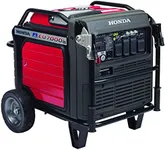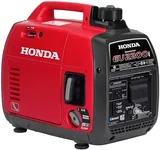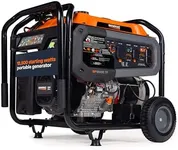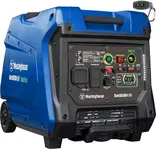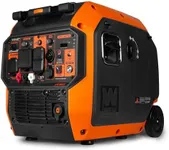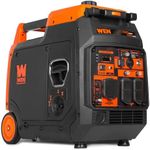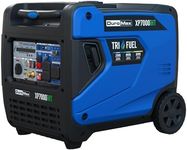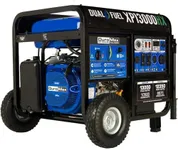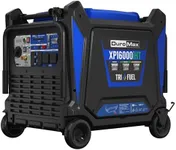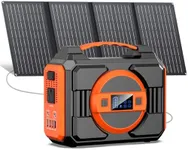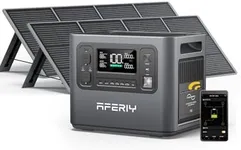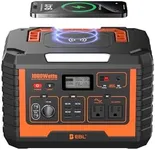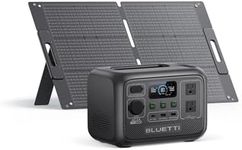Buying Guide for the Best Quiet Rv Generators
Choosing the right RV generator is crucial for ensuring a comfortable and enjoyable experience while on the road. A quiet RV generator can make a significant difference in maintaining a peaceful environment, both for you and your neighbors. When selecting a generator, it's important to consider several key specifications that will help you find the best fit for your needs. Understanding these specs will guide you in making an informed decision that balances power, noise level, fuel efficiency, and portability.Noise Level (Decibels)The noise level of a generator is measured in decibels (dB) and indicates how loud the generator will be when in operation. This spec is important because a quieter generator will ensure a more peaceful environment, which is especially crucial in campgrounds or residential areas. Noise levels typically range from 50 dB to 70 dB. Generators with noise levels below 60 dB are considered quiet and are ideal for RV use. If you value tranquility and want to avoid disturbing others, opt for a generator with a lower decibel rating.
Power Output (Watts)Power output, measured in watts, indicates the amount of electrical power the generator can produce. This is important because it determines what appliances and devices you can run simultaneously. Power output is usually divided into starting watts (the initial surge needed to start an appliance) and running watts (the continuous power needed to keep it running). For RV use, consider your power needs: small RVs may require around 2000-3000 watts, while larger RVs with more appliances may need 3000-4000 watts or more. Assess your power requirements and choose a generator that can handle your load.
Fuel TypeGenerators can run on various fuel types, including gasoline, propane, and diesel. The fuel type affects the generator's efficiency, availability of fuel, and maintenance. Gasoline generators are common and easy to refuel, but they may require more frequent maintenance. Propane generators are cleaner and have a longer shelf life, making them a good choice for occasional use. Diesel generators are more fuel-efficient and durable, ideal for heavy-duty use. Consider your fuel availability, storage, and how often you plan to use the generator when choosing the right fuel type for your needs.
PortabilityPortability refers to how easy it is to move and transport the generator. This is important for RV users who need to set up and pack up frequently. Portable generators are typically lighter and come with handles or wheels for easy maneuverability. Weights can range from 50 pounds to over 100 pounds. If you plan to move the generator often, look for a lightweight model with convenient features like wheels and handles. For stationary use, portability may be less of a concern, but it's still worth considering how easy it will be to store and transport.
Fuel Efficiency and RuntimeFuel efficiency and runtime indicate how long the generator can run on a full tank of fuel. This is important for planning your power usage and ensuring you have a continuous power supply without frequent refueling. Fuel efficiency is measured in terms of hours per gallon, and runtime is the total time the generator can operate on a full tank. Generators with higher fuel efficiency and longer runtimes are ideal for extended use. Consider how long you need the generator to run and how often you can refuel when choosing a model with the right balance of efficiency and runtime.
Inverter TechnologyInverter technology allows the generator to produce clean and stable power, which is important for sensitive electronics like laptops, smartphones, and medical devices. Inverter generators are generally quieter and more fuel-efficient than conventional generators. They adjust the engine speed to match the power demand, resulting in lower noise levels and better fuel efficiency. If you plan to power sensitive electronics or value quiet operation and fuel efficiency, an inverter generator is a great choice.

